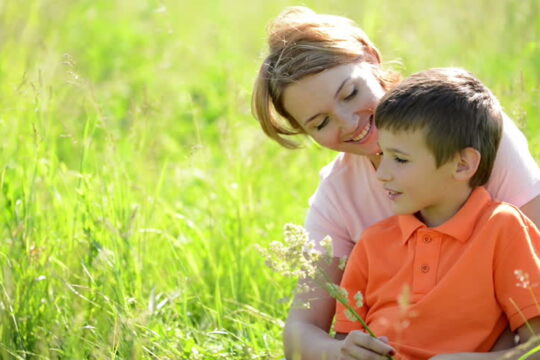Child teaching at age 6 gives parents lots of joy. The child begins going to school and every day learns something new. It’s a time of discovery and learning new things. Everything is exciting and fantastic!
At age six, your child learns to be more independent and his personality develops more and more. His character comes into the display and it influences the general and particular ways how a child is taking in and processing new informations and knowledge.
 Coming to the age of six, child’s body grows at fast pace and every day he is stronger and taller. Movement coordination increases, muscles grow stronger and the sphere of interests widen. As he becomes more independent, he starts to use things (like toothpaste) without the help of the elders.
Coming to the age of six, child’s body grows at fast pace and every day he is stronger and taller. Movement coordination increases, muscles grow stronger and the sphere of interests widen. As he becomes more independent, he starts to use things (like toothpaste) without the help of the elders.
This is also the time you should closely monitor your child as he often overrates his capabilities and can grossly misjudge what is good for him. Keep an eye on him especially when the child is in the kitchen or eating hard to chew food.
During sixth year of life you can expect your child to loose some of his baby or primary teeth. Child teaching at age 6 includes developing the habit of regularly visiting the child dentist every 4 – 6 months. This will ensure the proper growth of healthy permanent teeth of your child.
Child Teaching At Age 6 – The New Chapter
The child teaching at age 6 is the whole new chapter for parents. Schooling brings new responsibilities for a child and is more time-demanding for the parents. If you skipped it at the age 5, it now time to assist your child to help him learn how to write letters, words and sentences. You’ notice how the drawings and the paintings of your child will contain more and more details and he may even attempt to tie his own shoes.
 As a parent, you’ll tart noticing how your time passes faster than before and how child teaching at age 6 has a new dimension to it. Your child will talk more, listen more and ask more. Preparing yourself for a child teaching at age 6 will help your child satisfy his thirst for knowing how thing work and why. You’ll observe how at the age of six, your child makes more effort to please the adults and prove worthy.
As a parent, you’ll tart noticing how your time passes faster than before and how child teaching at age 6 has a new dimension to it. Your child will talk more, listen more and ask more. Preparing yourself for a child teaching at age 6 will help your child satisfy his thirst for knowing how thing work and why. You’ll observe how at the age of six, your child makes more effort to please the adults and prove worthy.
Get ready to acknowledge his attempts to understand things in a literal way often using wrong logic. For example the child may tell you that he thinks how a bigger cup of orange juice contains more sugar ratio than the smaller cup of the same juice. Be careful never to make fun of their mistakes. Once they develop a fear of making a mistakes, they may slow down learning about things and be inquisitive.









